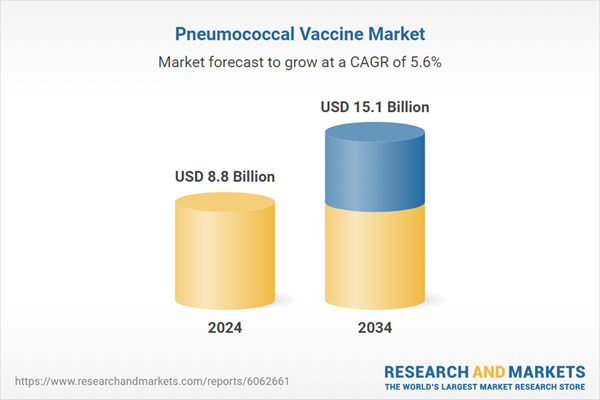As governments prioritize preventive healthcare and integrate pneumococcal vaccines into routine immunization schedules, market demand is set to rise significantly. The increasing focus on immunizing immunocompromised individuals and elderly populations is creating new opportunities for vaccine manufacturers. Furthermore, pharmaceutical companies are working closely with global health organizations to expand access to these vaccines in low-income regions, where pneumococcal diseases remain a major public health concern. Rising funding for vaccine research, coupled with initiatives to develop broad-spectrum vaccines that cover emerging serotypes, is expected to further boost market growth over the next decade.
The market is segmented based on product, with various pneumococcal vaccines contributing significantly to preventing severe bacterial infections. One of the most widely used vaccines is expected to experience notable growth, with a projected CAGR of 5.8%, generating USD 7.9 billion by 2034. Its proven efficacy in protecting against multiple Streptococcus pneumoniae serotypes has led to widespread adoption, especially in pediatric and high-risk adult populations. The vaccine’s ability to provide long-term immunity makes it a preferred choice among healthcare providers and government vaccination campaigns. With its broad coverage against severe pneumococcal diseases, including pneumonia, sepsis, and meningitis, this vaccine continues to strengthen its position in global immunization programs.
The pneumococcal vaccine market is divided into two main types: conjugate vaccines and polysaccharide vaccines. Conjugate vaccines dominated the market in 2024, generating USD 8 billion due to their ability to offer long-lasting protection against pneumococcal infections. Their high effectiveness in preventing pneumococcal diseases, especially among children under five years old, has fueled their growing demand. Additionally, expanding applications among adult populations, particularly those with weakened immune systems and elderly individuals, are accelerating the adoption of conjugate vaccines. Their ability to reduce the overall burden of pneumococcal diseases has established them as the preferred choice for routine immunization schedules.
The U.S. pneumococcal vaccine market generated USD 3.7 billion in 2024. The rising elderly population in the country has been a key driver of this growth, as aging individuals face a higher risk of contracting pneumococcal infections due to declining immune function. Preventive healthcare efforts and nationwide vaccination programs have significantly increased vaccine uptake, ensuring better protection for high-risk populations. Pharmaceutical companies and government agencies continue to enhance vaccine coverage, with ongoing efforts to develop newer vaccines that target a broader range of pneumococcal serotypes, further supporting the market’s long-term expansion.
Comprehensive Market Analysis and Forecast
- Industry trends, key growth drivers, challenges, future opportunities, and regulatory landscape
- Competitive landscape with Porter’s Five Forces and PESTEL analysis
- Market size, segmentation, and regional forecasts
- In-depth company profiles, business strategies, financial insights, and SWOT analysis
This product will be delivered within 2-4 business days.
Table of Contents
Companies Mentioned
The major companies profiled in this Pneumococcal Vaccine market report include:- Beijing Minhai Biological Technology
- Bio-Manguinhos/Fiocruz
- GlaxoSmithKline
- Merck & Co.
- Pfizer
- Serum Institute of India
- Walvax Biotechnology
Table Information
| Report Attribute | Details |
|---|---|
| No. of Pages | 130 |
| Published | March 2025 |
| Forecast Period | 2024 - 2034 |
| Estimated Market Value ( USD | $ 8.8 Billion |
| Forecasted Market Value ( USD | $ 15.1 Billion |
| Compound Annual Growth Rate | 5.6% |
| Regions Covered | Global |
| No. of Companies Mentioned | 8 |









